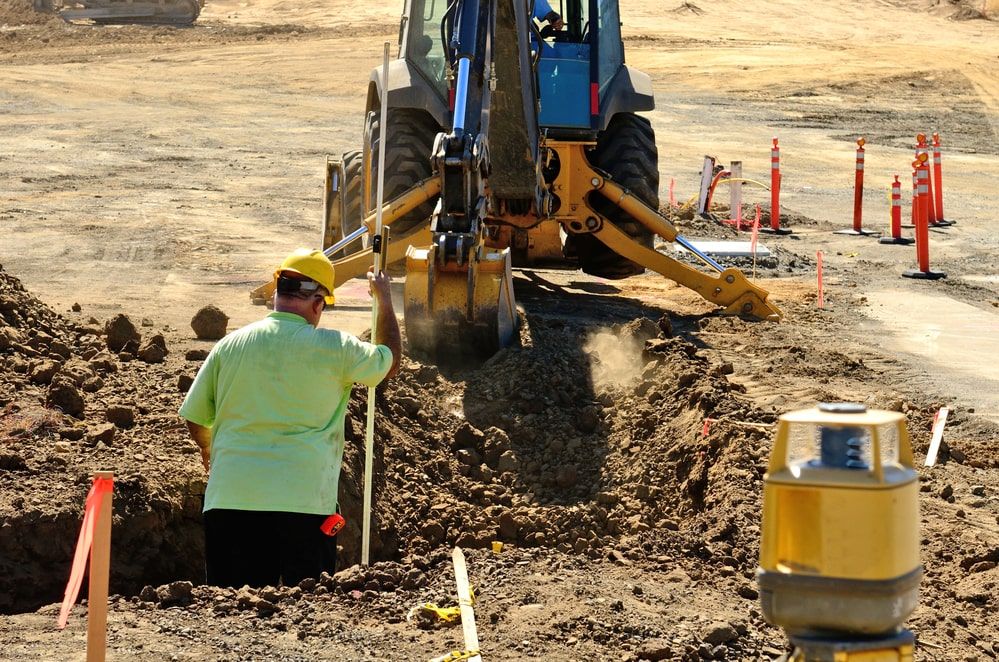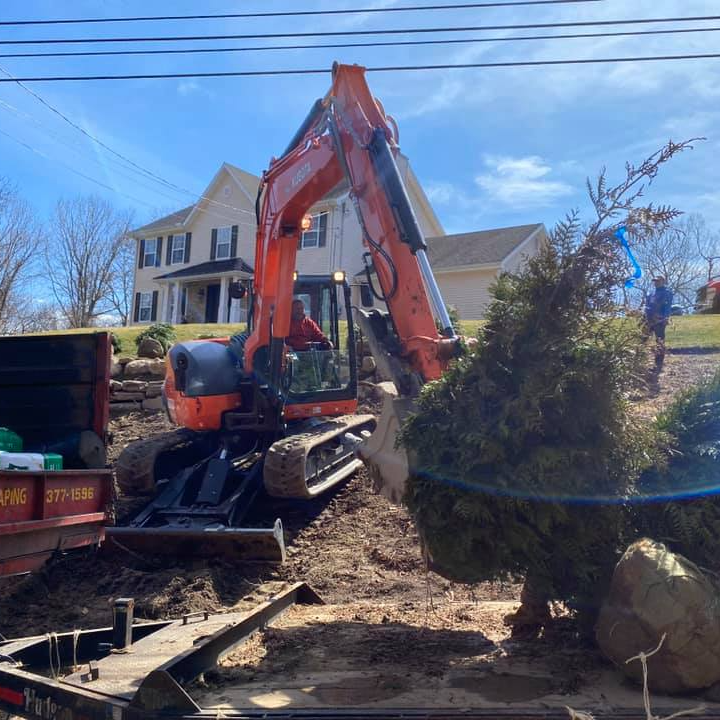Expert Septic Ohio - Trusted Septic System Experts in Ohio
Expert Septic Ohio - Trusted Septic System Experts in Ohio
Blog Article
Comprehensive Excavation Approaches: Understanding the Principles for Success
The careful preparation, exact implementation, and meticulous focus to detail required in excavation tasks demand a comprehensive approach that encompasses different essential aspects. The true mastery exists not simply in understanding these fundamentals but in flawlessly integrating them to navigate the intricacies of excavation projects with skill.
Recognizing Excavation Job Preparation

Successful excavation jobs are constructed on the structure of comprehensive and meticulous preparation. The first phase of any excavation job is the preparation phase, where crucial decisions are made that can considerably affect the outcome of the job. Throughout this phase, it is necessary to gather all relevant information concerning the site, consisting of topographical surveys, soil structure, and any kind of prospective dangers that may exist. Understanding the project extent, budget plan, and timeline restrictions is critical for creating a thorough excavation strategy that makes certain the job's success.
One key element of excavation task planning is the growth of a detailed timeline that details the sequence of due dates, landmarks, and activities. This timeline acts as a roadmap for the job team, enabling them to track progress and make required modifications to make sure the project remains on routine. In addition, a well-defined budget plan that represents all expenditures, consisting of devices rental, labor expenses, and products, is important for avoiding cost overruns and hold-ups. By thoroughly considering all these aspects throughout the drawing board, excavation jobs can be carried out effectively and efficiently, bring about successful outcomes.
Dirt Evaluation and Site Analysis
Conducting complete dirt analysis and site examination is a critical action in the prep work stage of any kind of excavation project. Soil analysis includes establishing the composition, structure, and buildings of the soil at the excavation site. This information is vital for recognizing the soil's bearing ability, dampness content, and potential for erosion, which are crucial factors in figuring out the excavation approaches and tools required for the task.
Website analysis surpasses dirt evaluation and incorporates a more comprehensive analysis of the overall website problems. This analysis consists of recognizing any kind of possible threats, such as below ground energies, environmental worries, or unsteady terrain, that could impact the excavation process. By extensively reviewing the website, job managers can develop effective excavation strategies that focus on security, effectiveness, and environmental protection.
Utilizing innovative modern technologies like ground-penetrating radar, dirt sampling, and drone surveys can boost the precision and effectiveness of soil evaluation and website assessment. Investing time and sources in these initial actions can inevitably conserve time and avoid costly hold-ups or difficulties throughout the excavation process.
Equipment Option and Application
Efficient excavation tasks depend greatly on critical tools option and utilization to ensure optimum efficiency and performance. Selecting the best tools for the work is vital in optimizing performance and lessening downtime. Factors such as the sort of soil, deepness of excavation, and project extent play a considerable duty in figuring out the most appropriate equipment for the task handy.

Along with choosing the proper devices, appropriate use is crucial to task success. Operators has to be educated to take care of the tools securely and efficiently - lancaster trenching. Routine maintenance checks and timely repair services assist stop malfunctions and make sure regular efficiency throughout the task
Safety And Security Actions and Rules Conformity
In the world of excavation jobs, prioritizing safety measures and conformity with guidelines is vital to making sure a safe and secure and lawfully sound operational atmosphere. Safety actions incorporate a variety of practices, consisting of carrying out extensive site analyses, executing proper signs and barriers, and providing appropriate safety and security training for all employees included in the excavation procedure. Adherence to guidelines, such as OSHA requirements in the USA, guarantees that the excavation project satisfies the necessary criteria to safeguard employees, bystanders, and the surrounding setting.

Surveillance Progression and Adjusting Approaches
Just how can forecast managers properly track the advancement of excavation tasks and adapt their strategies as necessary to maximize results? Monitoring progression is vital for making certain that excavation tasks remain on track and meet target dates. Job supervisors can make use of different tools and strategies to track development, such as day-to-day report card, normal site inspections, and progressed monitoring modern technologies like drones and GPS tracking systems. By continually monitoring the job's advancement, supervisors can identify any kind of potential hold-ups or problems beforehand and take positive measures to resolve them.
Conclusion
Finally, mastering the principles of extensive excavation strategies is vital for the success of any job. By comprehending project preparation, assessing soil and site conditions, picking ideal tools, complying with safety and security guidelines, and keeping track of progression, job supervisors can guarantee a smooth and efficient excavation process. Carrying out these techniques will certainly result in effective outcomes and lessen potential dangers or setbacks throughout the excavation project.
The preliminary stage of any excavation task is the planning stage, where crucial choices are made that can considerably influence the outcome of the task. Understanding the job top article budget, timeline, and range restraints is crucial for producing a detailed excavation strategy that ensures the job's success.
Exactly how can predict managers effectively track the improvement of excavation tasks and adapt their strategies appropriately to enhance end results? By very closely monitoring progress and being prepared to adapt techniques, job supervisors can boost the overall success of excavation projects.
By recognizing job planning, evaluating soil and website conditions, you can check here choosing suitable devices, conforming with safety and security laws, and checking progression, task supervisors can make sure a smooth and efficient excavation process.
Report this page